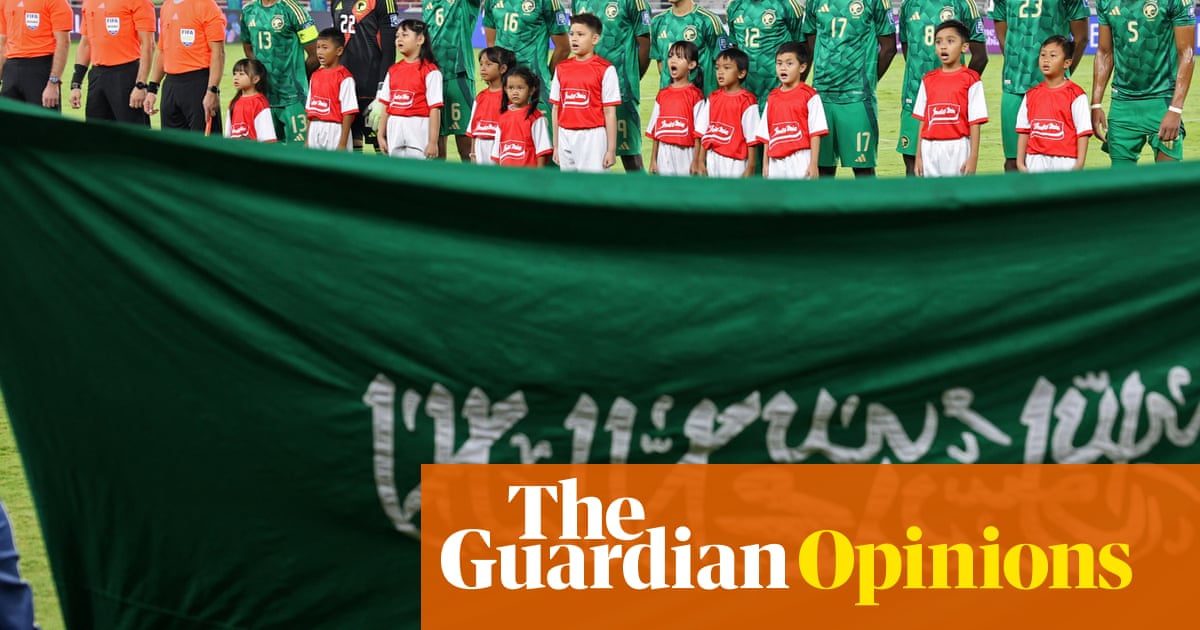Last month, the Confederation of North, Central America and Caribbean Association Football (Concacaf) held an official draw in Miami, Florida for the 2025 Gold Cup, the premier biennial tournament for men’s football on the continent.
This summer, the Gold Cup will serve as the crucial litmus test for the US national team ahead of the 2026 World Cup, the vast majority of which will take place on home soil. The draw placed the Americans in Group D, alongside Haiti, Trinidad and Tobago … andSaudi Arabia.
Why is a Middle Eastern country on the Asian continent in a regional competition half a world away? The answer lies in some of the strange twists that world football tends to take.
The Kingdom is Concacaf’s official “invited guest” of the tournament, continuing a tradition that started early in the tournament’s founding, during which time the likes of Brazil, South Korea, and South Africa were among the guest nations to take part. The practice was abandoned in the early-00’s, but was restarted in the 2021 edition when Qatar, another authoritarian gulf state, was invited to take part the year before the nation hosted the World Cup. They returned for the 2023 edition, as well. Concacaf announced Saudi Arabia as the guest participant just eight days after the Kingdom secured the 2034 World Cup in December 2024.
“We are very pleased that through our relationship with the Asian Football Confederation we have been able to collaborate with the Saudi Arabian Football Federation and their President Yasser Al-Misehal, both on and off the pitch,” Concacaf president Victor Montagliani said in the official press release. “We look forward to welcoming one of Asia’s top men’s national teams to compete with the best in Concacaf.”
The top three teams in the Gold Cup – the US, Canada, and Mexico – are already qualified for the 2026 FIFA World Cup as co-hosts. What they needed were serious opponents in a competitive setting. Instead, they got Saudi Arabia–a team currently struggling in its own World Cup qualification campaign – granted a spot not on merit, but seemingly in exchange for a hefty financial contribution to Concacaf.
Excluded from the press release announcing Saudi Arabia’s Gold Cup participation is Concacaf’s partnership with Saudi Arabia’s Public Investment Fund (PIF) – the state-owned sovereign wealth fund chaired by Crown Prince Mohammed bin Salman. The injection of funds from the PIF is expected to boost soccer development in the region, with more tournaments for men, women, and youth participants. “Together, we will advance a series of initiatives to create a positive and lasting impact across all Concacaf competitions,” Mohammed AlSayyad, head of corporate brand at PIF,said at the time.
It’s not the first and will hardly be the Saudi regime’s last effort to turn the entire world of sports to its advantage. Over the past few years, the PIF has reshaped global sports through aggressive investments and strategic acquisitions aimed at bolstering the kingdom’s global influence and soft power. From acquiring top-tier soccer clubs like Newcastle United to ambitious plans in boxing, golf, and esports, the PIF has enabled the Saudi regime to exploit sports as a diplomatic and economic tool, while raising concerns about conflicts of interest, governance, and the growing authoritarian grip on world sports.
Concacaf’s deal with PIF notably comes after the confederation designated Aramco, the Saudi state-run oil company, as the “official energy partner” for all of CONCACAF’s national team and club competitions. The confederation then announced that Riyadh Air would be the “official airline partner” in a multi-year deal. The PIF-owned airline, which is also a shirt sponsor of La Liga side Atlético Madrid, is yet to officially launch.
The U.S. government has also shown concerns for the PIF’s dealings in the United States. Sen. Richard Blumenthal (D-CT), the ranking member of the U.S. Senate Permanent Subcommittee on Investigations, has been investigating how the Saudi state is using its sovereign wealth fund to buy influence in the US, including its ongoing bid to create a merger between the Saudi-owned LIV Golf league and the PGA Tour. In an attempt to hinder the investigation, however, the PIF has filed lawsuits in Saudi Arabia seeking to block four PIF consultants, Boston Consulting Group, McKinsey & Company, M. Klein & Company, and Teneo–all headquartered in the United States–from responding to subpoenas issued by the subcommittee.
In April, Blumenthalreleased a new reporton his findings into the 2023 framework agreement between the PGA Tour and the PIF, alleging that the PIF only tried to negotiate with the PGA Tour in order to avoid discovery.
“Our report reveals how present laws may enable foreign influence without transparency,” Bluemnthalsaid. “Very simply, our present defenses do not protect against increasingly sophisticated threats.”
Blumenthal’s report lands as the Trump administration actively undermines the US government’s capacity to combat foreign influence, scaling back enforcement of things like the Foreign Agents Registration Act (FARA) and hollowing out the very departments tasked with investigating foreign influence efforts. It’s a vulnerability the Saudi government is well positioned to exploit, particularly through PIF’s expanding footprint in global sports.
By weaponizing sports as part of its national strategy, the Kingdom is deepening its influence in North America, bolstering its global image ahead of the 2034 World Cup, and dismantling scrutiny over itshuman rights record, one critic at a time – the soft power equivalent of a perfectly timed goal.
Saudi Arabia’s participation in the Gold Cup isn’t just about football. It’s a calculated strategy rooted in geopolitical maneuvering and influence management. The Gold Cup is merely the latest arena in which the Kingdom is flexing its growing influence.
Karim Zidanwrites a regular newsletteron the intersection of sports and authoritarian politics.
